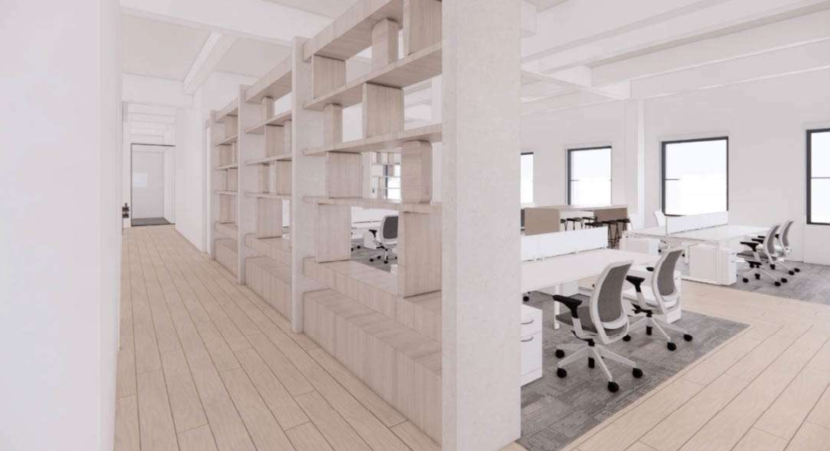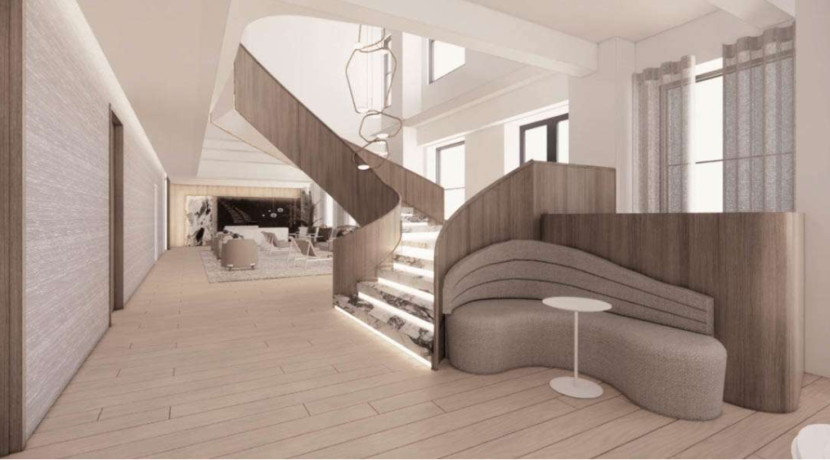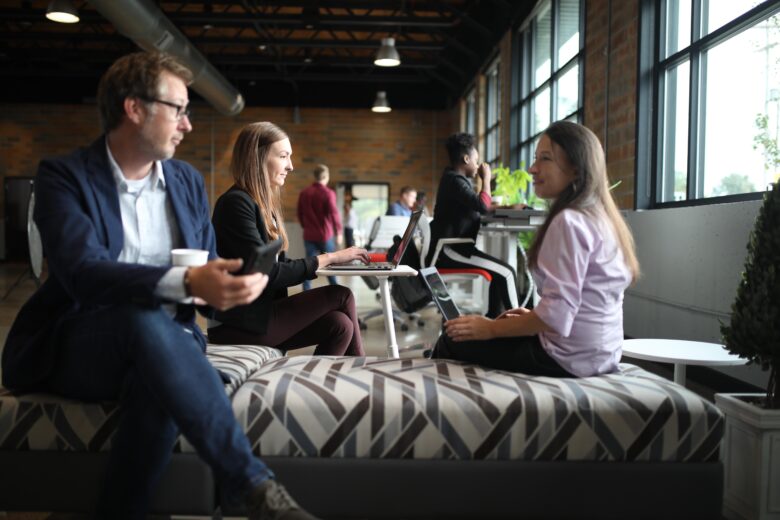The Office of Tomorrow: Redefining the Future Workplace Experience
November 12, 2024

Introduction
The world of work is rapidly evolving, driven by technological advancements, shifting employee expectations, and an increased focus on sustainability and well-being. The traditional office environment is no longer sufficient to meet these new demands, prompting organizations to reimagine their workspaces. The office of tomorrow must be adaptable, efficient, and comfortable to foster innovation, collaboration, and employee satisfaction. In this article, we explore the key elements that will define the future workplace experience.
Flexible Workspaces: Adapting to Dynamic Work Styles
As organizations embrace more agile and collaborative work methods, the need for flexible workspaces is paramount. The office of tomorrow will feature modular furniture and movable walls, allowing for quick and easy reconfiguration of the space. This adaptability is essential in accommodating different work styles, team sizes, and project requirements, fostering a more efficient and inclusive work environment.
Multi-purpose spaces will also play a significant role in the future workplace, offering versatility for various work activities. These areas can transform from quiet focus zones to lively collaboration hubs, meeting rooms, or event spaces, depending on the needs of the moment. By providing employees with a diverse range of workspaces, organizations can cater to individual preferences and boost overall productivity.
Remote Work Integration: Bridging the Gap Between In-person and Remote Teams
The rise of remote work has forever changed the way we collaborate, communicate, and conduct business. To stay competitive, organizations must seamlessly integrate remote team members into the daily operations of the office. The future workplace will feature dedicated video conferencing spaces, equipped with state-of-the-art technology to facilitate high-quality, real-time interactions between in-person and remote employees.
Moreover, telepresence technology and collaboration tools will play a crucial role in connecting geographically dispersed team members. Virtual whiteboards, file-sharing platforms, and instant messaging systems will enable smooth and efficient collaboration on projects, regardless of physical location. By investing in these technologies, organizations create a more inclusive and connected work environment, empowering employees to excel in the hybrid workplace.
Advanced Technology: Streamlining Workflows and Enhancing Productivity
The integration of advanced technology in the workplace can revolutionize the way we work, optimize processes, and improve overall productivity. Artificial intelligence (AI) and Internet of Things (IoT) devices will play an increasingly significant role in the office of tomorrow, automating routine tasks, providing valuable insights, and enabling smarter decision-making.
Additionally, the adoption of voice-activated assistants, smart lighting, and climate control systems will create a more personalized and comfortable work environment. Employees can easily adjust their surroundings to suit their preferences, contributing to increased focus, satisfaction, and performance.
Biophilic Design: Harnessing the Power of Nature for Well-being and Creativity
Biophilic design, which incorporates elements of nature into the built environment, can profoundly impact employee well-being, creativity, and productivity. The office of tomorrow will feature indoor plants, green walls, and ample natural light, creating a serene and inspiring atmosphere.
By integrating nature into the workplace, organizations benefit from improved air quality, reduced stress levels, and increased cognitive function among employees. Moreover, the use of energy-efficient lighting and passive solar design principles can contribute to a more sustainable and cost-effective office.
Ergonomic Furniture: Promoting Health and Comfort in the Workplace
Investing in ergonomic furniture is essential for the health, comfort, and productivity of employees. The office of tomorrow will feature adjustable desks, chairs, and workstations that promote proper posture and minimize the risk of work-related injuries.
By prioritizing ergonomics, organizations can reduce employee fatigue, increase engagement, and create a more supportive and inclusive work environment. This focus on employee well-being can lead to higher job satisfaction, retention, and productivity.
Sustainable Materials: Minimizing Environmental Impact and Creating a Healthy Work Environment
The office of tomorrow will prioritize sustainability, incorporating eco-friendly materials, energy-efficient appliances, and renewable energy sources. The use of recycled materials, low-emission finishes, and energy-saving lighting can significantly reduce the office’s environmental footprint while promoting a healthier work environment.
By embracing sustainable practices, organizations demonstrate their commitment to corporate social responsibility, attract eco-conscious talent, and improve their overall brand image.
Wellness-focused Amenities: Supporting Employee Health and Well-being
To enhance employee well-being and job satisfaction, the office of tomorrow will offer wellness-focused amenities such as fitness centers, meditation rooms, and healthy food options. These facilities promote a holistic approach to employee health, addressing both physical and mental well-being.
By providing access to wellness resources, organizations reduce stress, increase resilience, and foster a positive workplace culture. This comprehensive focus on well-being can ultimately lead to increased productivity, loyalty, and job satisfaction.
Enhanced Security: Safeguarding Sensitive Information and Ensuring Employee Safety
In the age of digital transformation and increased cyber threats, robust security measures are essential for protecting sensitive information and maintaining employee safety. The office of tomorrow will employ advanced security technologies such as facial recognition, biometric access control, and sophisticated cybersecurity protocols. By prioritizing security, organizations mitigate risks, safeguard their reputation, and create a safe and secure work environment for their employees.
Smart Building Systems: Maximizing Efficiency And Minimizing Costs
Smart building technologies designed to monitor, control, and optimize building operations will be a vital component of the office of tomorrow, enabling more efficient energy consumption, air quality and controls, and maintenance needs. By leveraging AI and IOT to connect and enhance building systems, organizations create streamlined, cost-effective work environments by integrating intelligent systems that monitor and control various aspects of the building.
This advanced technology not only reduces operating costs but also contributes to a more sustainable and comfortable workplace, enhancing employee satisfaction and productivity.
Inclusivity and Accessibility: Designing for All Abilities, Backgrounds, and Needs
The office of tomorrow will prioritize inclusive design, ensuring that workspaces are accessible and accommodating to people of all abilities, backgrounds, and needs. By adhering to universal design principles, organizations can create an environment where everyone feels welcome, valued, and able to perform at their best.
Inclusive design considerations may include ramps, wide doorways, adjustable workstations, and accessible restrooms, as well as implementing policies and practices that promote diversity, equity, and inclusion in the workplace. By fostering a culture of inclusivity, organizations can attract and retain a diverse workforce, drive innovation, and achieve long-term success.
Final Thoughts
The office of tomorrow represents a synergistic blend of technology, design, and human-centric features that work together to create a more efficient, comfortable, and sustainable work environment. By embracing these elements, organizations can promote collaboration, innovation, and well-being, ultimately shaping a workplace experience that empowers employees to excel in the ever-evolving world of work. By staying ahead of the curve and investing in the office of tomorrow, businesses can position themselves for success in the competitive landscape of the future.
Are you inspired by the future of office design and eager to reimagine your own commercial space? Don’t let financing hold you back — Dolfin is here to help you secure tenant improvement financing for your commercial real estate projects.
At Dolfin, we’re passionate about helping landlords and businesses create workspaces that are not only functional but also foster innovation, collaboration, and employee satisfaction. We understand that the key to unlocking your organization’s full potential lies in designing a modern and adaptable office environment.
With Dolfin’s financing solutions, you can bring your vision for the office of tomorrow to life. Our team of experienced professionals will work directly with you to secure the funds you need to transform your workspace.
Don’t miss out on the opportunity to stay ahead of the curve and invest in your future success. Contact us today – let’s work together to create a thriving, innovative, and sustainable workplace for your team.




